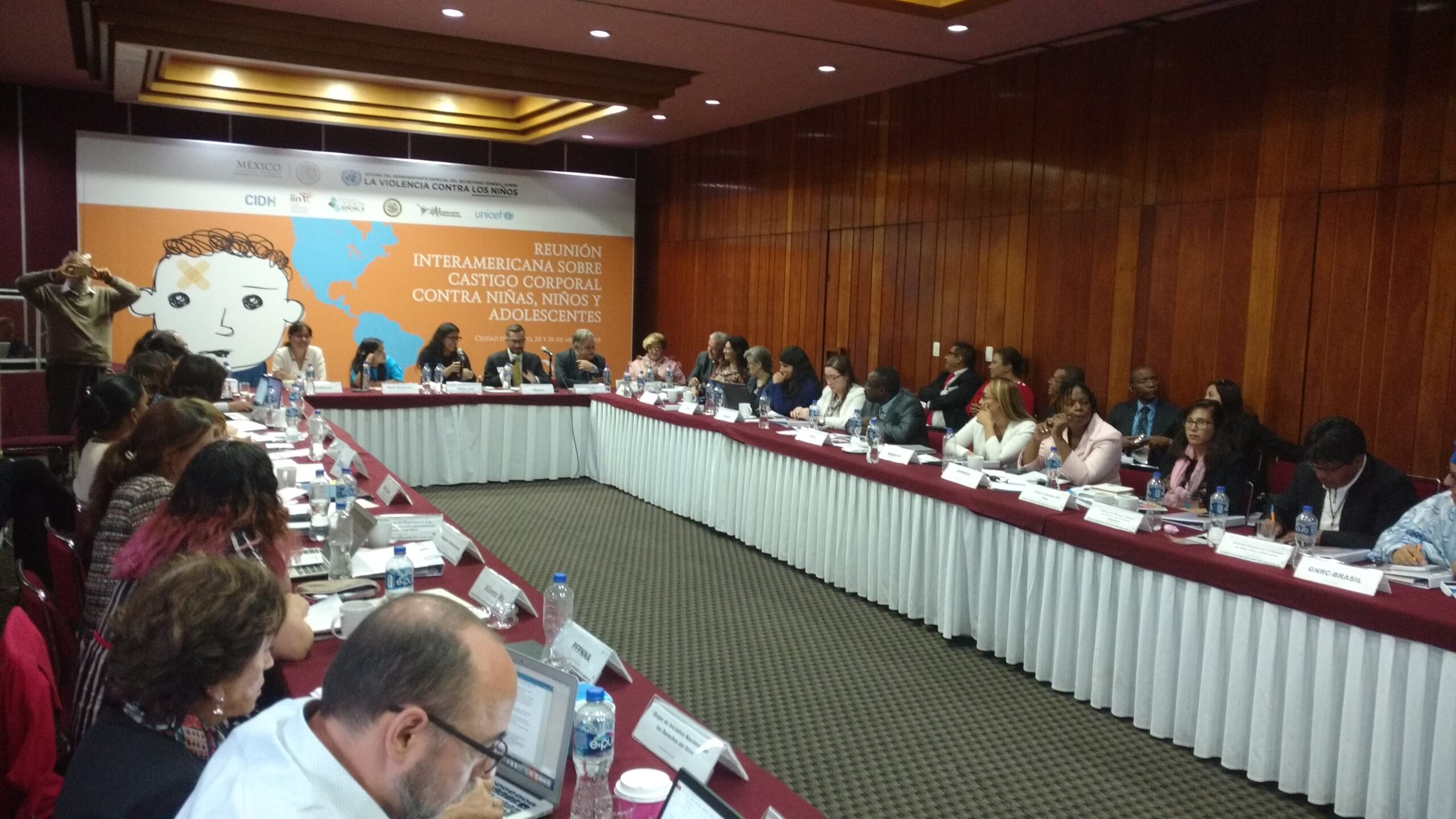
On 27th April 2018, Ms. Silvia Mazzarelli, the GNRC–Coordinator for Latin America and the Caribbean and Ms. Ingrid Martínez, Member–GNRC–Dominican Republic, attended the Regional Consultation on School Bullying held in Mexico City, hosted by the Government of Mexico, in cooperation with the Inter-American Commission on Human Rights (IACHR). The Special Representative of the Secretary General on Violence against Children (SRSG-VAC), the Inter-American Children’s Institute (IIN), the United Nations Children’s Fund (UNICEF), and the Latin American and Caribbean Network for Children and Adolescents Rights (REDLAMYC) also supported the event.
The event aimed at identifying best practices to ensure the protection of children against bullying and cyberbullying and enhance the experiences and national actions to promote a culture of peace, and prevent and eliminate violence.
The event was organized as follow-up to the United Nations General Assembly Resolution A/RES/71/ 176, “Protecting children from bullying,” adopted on December 2016, which requests the Secretary-General to report on the implementation of the resolution, and appeals the SRSG-VAC to support the organization of follow-up expert consultations at the regional level to share experiences and best practices.
Ms. Mazzarelli highlighted the importance of promoting democratic coexistence and ethical values at school to prevent bullying and cyberbullying. She briefly described some successful experiences of the GNRC in the region to prevent violence among children at school, through the implementation of the Arigatou International’s ethics education programme, Learning to Live Together. More specifically she mentioned the experiences in Ecuador, in El Salvador and Chile.
Participants agreed that the problem requires attention and action by all community stakeholders who need to work together in multi-stakeholder partnerships, including with children, because it is not the sole responsibility of the formal education system. Moreover, to eliminate bullying and cyberbullying, participants saw the need to move beyond the idea of only informing and raising awareness in schools and begin to consider the idea of effectively transforming social and cultural behaviors and practices.
Participants decided to establish a new strategic dialogue with the media and other highly influential actors that have impact on public opinion, including the social sector, the private sector and the religious sector, that can make significant contributions for social and cultural change.

